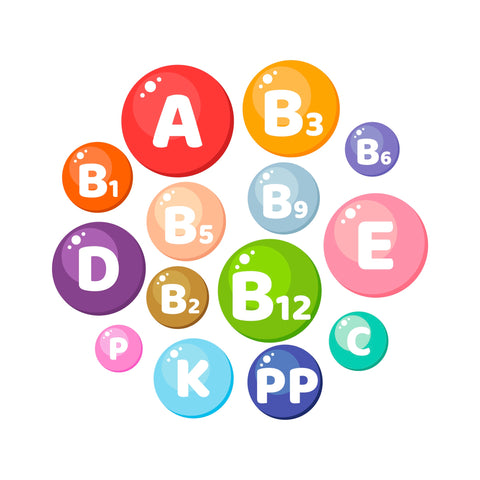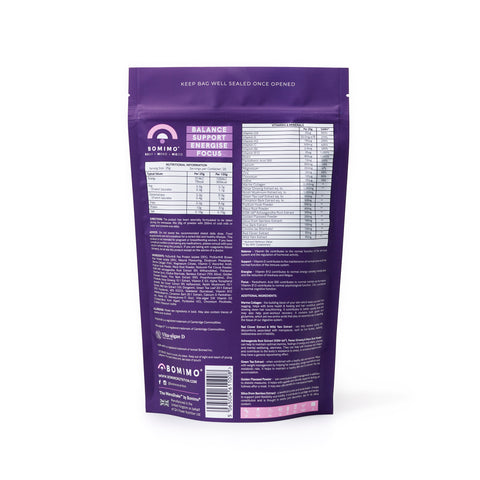Nutrient Reference Values (NRVs) Explained

Nutrient Reference Values (NRVs) are a set of guidelines that provide recommended levels of intake for the amount of various essential nutrients that an individual should consume in order to maintain good health. These values are based on scientific research and are used to develop dietary guidelines and to assess the nutritional content of foods. Nutritional Reference Values (NRVs) are set for different age and gender groups and take into account factors such as pregnancy and lactation. Some examples of nutrients that have Nutritional Reference Values (NRVs) include vitamins, minerals, protein, and fats.
Nutrient Reference Values (NRVs) include recommended daily allowances (RDAs) for specific nutrients, which are the average daily intake level that is sufficient to meet the nutrient needs of nearly all (97-98%) healthy individuals in a specific group. Additionally, there are also the Adequate Intakes (AIs) which are established when there is not enough scientific data to establish a Recommended Daily Allowance (RDA), these are used as a guide for nutrient intake.
Nutrient Refence Values (NRVs) also include upper limits (ULs) which are the highest level of daily nutrient intake that is likely to pose no risk of adverse health effects to almost all individuals in the general population. The UL is not a recommended level of intake, but rather a limit to prevent excessive intake and potential health risks.
Examples of nutrients that have NRVs include vitamins, minerals, protein, and fats. They are intended to help individuals make informed choices about their diet and to identify potential nutrient deficiencies. However, it is important to note that individual nutrient needs may vary depending on factors such as overall health, activity level, and dietary restrictions.
Nutrient Reference Values (NRVs) set of guidelines for the recommended daily intake of specific nutrients for menopausal women take into account the unique nutritional needs of menopausal women, such as an increased risk of osteoporosis, and recommend higher intake of calcium and vitamin D. Additionally, menopausal women may also benefit from a diet that is rich in fruits, vegetables, and whole grains, and that is low in saturated fats and cholesterol. This can help to reduce the risk of chronic diseases such as heart disease and certain types of cancer.
Perimenopause is the period leading up to menopause when a woman's hormonal levels begin to fluctuate and can cause symptoms such as hot flashes, mood swings, and sleep disturbances. During this time, it is important to maintain a healthy diet and adequate intake of nutrients to help manage these symptoms and promote overall health. Nutrient Reference Values (NRVs) guidelines for the recommended daily intake of specific nutrients for perimenopausal women may be similar to those for menopausal women, as the nutritional needs during both stages are closely related.
It is also important for perimenopausal women to get enough iron, as the menstrual cycle becomes irregular and can lead to heavy bleeding, and enough vitamin B12, as it's absorption decreases with age and perimenopause.
Postmenopause is the stage of a woman's life after menopause, when menstrual periods have stopped and the ovaries no longer produce eggs.
During postmenopause, women may experience a decline in estrogen levels which can increase the risk of osteoporosis and other health issues. Therefore, Nutrient Reference Values (NRVs) guidelines for the recommended daily intake of specific nutrients for postmenopausal women state that it is important for postmenopausal women to maintain a healthy diet that is rich in calcium and vitamin D to support bone health.
The Nutritional Refence Values (NRVs) for postmenopausal women also recommend a diet that is rich in fruits, vegetables, and whole grains, and low in saturated fats and cholesterol to reduce the risk of chronic diseases such as heart disease and certain types of cancer.
It is also important for postmenopausal women to get enough iron, as the menstrual cycle stops and the risk of iron-deficiency anaemia increases. They should also consider taking a Vitamin B12 supplement as absorption decreases with age, and postmenopausal women are at a higher risk of deficiency.
Making sense of the ingredients in products can be confusing at the best of times, but when it comes to health products and supplements there is even more information to tackle, such as the Nutrient Reference Values or NRVs. This is the same thing as the Recommended Daily Allowance or RDA; the values have stayed the same, but the name is more representative of what those numbers mean in real terms.
Calling it an “allowance” meant a lot of people believed it was unsafe to exceed that daily allowance, so the name change is welcome. Nutrient Reference Values might sound a little more vague but they don't imply that an allowance should not be exceeded, leading to less concern for consumers. Nutrient Reference Values are set based on the amounts the average adult needs to avoid deficiency of a particular vitamin or mineral, so getting 100% of the NRV each day simply means you're avoiding developing a deficiency, it doesn't actually mean you're getting as much as you might need for optimum health.
 During menopause, women may experience a decline in hormone levels, which can lead to a variety of symptoms such as hot flashes, night sweats, and vaginal dryness. Some women may choose to take supplements to help alleviate these symptoms. When looking for menopause supplements, it is important to look for those that contain Nutrient Reference Values of nutrients such as the following:
During menopause, women may experience a decline in hormone levels, which can lead to a variety of symptoms such as hot flashes, night sweats, and vaginal dryness. Some women may choose to take supplements to help alleviate these symptoms. When looking for menopause supplements, it is important to look for those that contain Nutrient Reference Values of nutrients such as the following:
Calcium: As women age, they may be at increased risk for osteoporosis, so it's important to make sure they are getting enough calcium. The recommended daily intake of calcium for women over 50 is 1200mg.
Vitamin D: Vitamin D helps the body absorb calcium, so it's important to get enough of both. The recommended daily intake of vitamin D for women over 50 is 600-800IU.
Vitamin B12: B12 is important for maintaining energy levels and a healthy nervous system. This nutrient can help to alleviate fatigue. The recommended daily intake of B12 for women over 50 is 2.4mcg.
Iron: Iron is important for maintaining healthy blood, and women may need more of it during menopause because of changes in the menstrual cycle. This nutrient is important for maintaining healthy blood and can help to alleviate anaemia. The recommended daily intake of iron for women over 50 is 8mg.
Vitamin E: This nutrient is important for maintaining skin, hair and nail health, and can help to alleviate hot flashes.
B vitamins, especially B6, are really important for digestive health, energy and cognitive function, boosting serotonin to help manage low moods, and managing inflammation. With digestive issues, brain fog, low mood and joint pain all common menopause symptoms, we benefit from higher doses of this vitamin.
We have doubled the Nutritional Reference Value for Vitamin K because it's absolutely vital for bone health – with osteoporosis a common risk in menopause it's really important to keep our bones as strong as possible. Weight bearing exercises are excellent for this but making sure we have enough Vitamin K to cope with these workouts is an important foundation.
Vitamin K is found in high concentrations in leafy green vegetables, and even with the best will in the world most of us don’t eat perfect amounts of spinach and broccoli etc… every single day. With 200% of the NRV for Vitamin K included in the MenoShake you don't have to worry, and because you're mixing with milk (or a calcium enriched alternative) you're also getting plenty of calcium on top of the 100% Nutrient Reference Value in the shake itself.
The other compound we have boosted in the MenoShake is Biotin. Biotin is vital for healthy skin, hair and nails, all of which can suffer due to falling hormone levels. By putting 1,600% Nutrient Reference Value (NRV) in we have ensured that you'll look as good on the outside as you do on the inside, because feeling good when we look in the mirror is a real mental health boost.
These are just a few examples of where eating more than the Nutrient Reference Value (NRV) levels of certain nutrients can be helpful during the perimenopausal phase of our lives. Armed with the right knowledge, we can be confident about the Nutrient Reference Values of both supplements and foods, and know which nutrients we should safely be getting more of for optimum health before, during and after menopause. If you’ve got any questions about the levels of any of the vitamins or minerals in our MenoShake, then please do get in touch and we will be happy to answer your query.
It is important to note that the appropriate dosage for these nutrients may vary depending on the individual, so it is always a good idea to consult with a healthcare professional before taking any supplements.



Leave a comment
Please note, comments must be approved before they are published